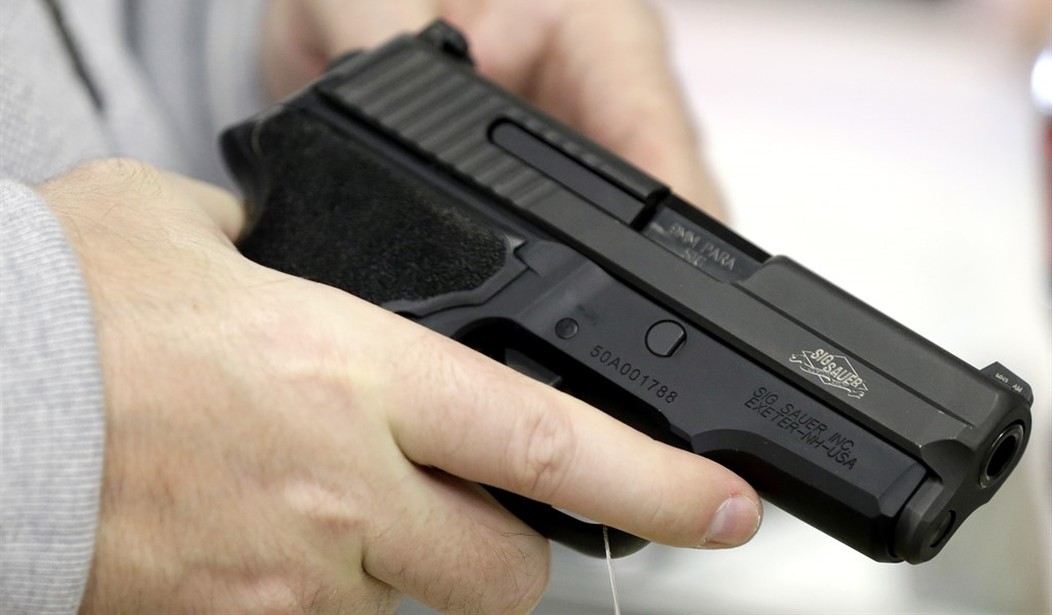At what age can you legally exercise your Second Amendment rights to acquire a gun? It’s a simple question, but there’s not really an easy answer. Under current federal law, you must be 18-years old in order to lawfully purchase a rifle or shotgun through a firearms dealer, but you can’t buy a handgun until you’re 21. A handful of states have raised the age to purchase any firearm to 21, and there are multiple court challenges underway to those laws; most notably in the Eleventh Circuit, where Florida’s under-21 gun ban is under scrutiny, and the Ninth Circuit, which recently sent a case taking on California’s similar ban back to district court for further review following the Supreme Court’s decision in NYSPRA v. Bruen.
Now a new federal lawsuit filed in West Virginia is taking on the federal prohibition on handgun sales to adults under the age of 21. The Second Amendment Foundation and the West Virginia Citizens Defense League (along with two individual plaintiffs) cite the Bruen and Heller cases along with some relevant U.S. history in their argument that the current federal prohibition flies in the face of the Constitution.
The Second Amendment guarantees the individual right “to keep and bear arms.” See also Heller, 554 U.S. at 595 and Bruen, 142 S.Ct. at 2122.
This is especially true when it comes to handguns, which the Supreme Court has explicitly recognized as “the quintessential self-defense weapon.” Heller, 554 U.S. at 629.
The fundamental right to keep and bear arms protected by the Second Amendment secures the right to purchase handguns and handgun ammunition for self-defense and other lawful purposes. These protections extend in full to all law-abiding, peaceable adults aged eighteen and older.
The Handgun Ban impermissibly infringes upon the right to keep and bear arms of all law-abiding, peaceable individuals aged eighteen to twenty. Heller demonstrated—through its analysis of the Second Amendment’s text, supported and informed by our Nation’s history and tradition— that historically ungrounded restrictions on the possession of handguns for self-defense must be held categorically unconstitutional, rather than subject to interest balancing.
The analysis must be “guided by the principle that ‘[t]he Constitution was written to be understood by the voters; its words and phrases were used in their normal and ordinary as distinguished from technical meaning.”’ Heller, 554 U.S. at 576 (quoting United States v. Sprague, 282 U.S. 716, 731 (1931)). We look to “the historical background of the Second Amendment” because “it has always been widely understood that the Second Amendment, like the First and Fourth Amendments, codified a pre-existing right.”
Bruen confirms that the lower courts approach of analyzing Second Amendment challenges which combined history with means-end scrutiny was “one step too many.” Bruen, 142 S.Ct. at 2127.
American history and tradition confirm that all law-abiding adults, including those under the age of twenty-one, were understood to have full Second Amendment rights in the founding era.
Indeed, over 250 colonial and founding-era militia statutes throughout the seventeenth and eighteenth centuries mandated that persons aged eighteen to twenty acquire and keep arms in order to serve in the militia and otherwise protect their communities. See generally David Kopel & Joseph Greenlee, The Second Amendment Rights of Young Adults, 43 S. ILL. U. L.J. 495 (2019) (providing over 200 militia statutes).
I’m obviously a little biased here, but given the text, history, and tradition test laid out by the Supreme Court in Bruen I think it’s going to be very difficult for the Biden administration to justify the current ban on handgun sales for adults under the age of 21. The current federal prohibition on handgun sales to under-21s wasn’t around at the time of the Founding or in place when the Fourteenth Amendment was ratified, after all. It didn’t take effect until 1968, when it was included in the Gun Control Act signed by then-President Lyndon Johnson.
Given that the Supreme Court has said that the Second Amendment protects a fundamental right to both keep and bear arms in self-defense, it seems odd that the right wouldn’t extend to young adults legally purchasing the most commonly-owned firearm for personal protection; a handgun. It’s particularly difficult to justify the ban when, as the SAF and WVCDL lawsuit points out, many states actually required young adults to own firearms for their potential militia service at the time the Constitution and the Bill of Rights were ratified.
This case, known as Brown v. ATF, could be a critically important step towards full recognition of our Second Amendment rights, and it’s definitely one we’ll be following closely here at Bearing Arms. Kudos to the Second Amendment Foundation, the West Virginia Citizens Defense League, and plaintiffs Stephen Brown and Benjamin Weekley for bringing this lawsuit forward, and stay tuned for the DOJ and ATF’s response, which should be coming in about a month.









Join the conversation as a VIP Member